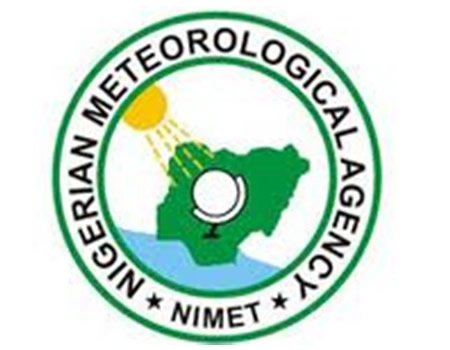The Nigeria Meteorological Agency has predicted near-normal onset and a normal to later than normal cessation for the 2020 Seasonal Rainfall Prediction (SRP).
Announcing the prediction on Tuesday in Abuja, the Minister of Aviation, Senator Hadi Sirika, said: “Onset (planting period): The Predicted 2020 onset of the growing season is expected to be ‘near-normal to earlier than normal in most parts of the country’ with the earliest onset date likely to occur on the 24th of February around the coastal zone of the south-south states while states like Sokoto, Kebbi, Zamfara, Katsina, Jigawa, Yobe and Borno are predicted to likely have their onset from 2nd June, 2020.
“Cessation: A ‘normal to later than normal’ cessation is expected across the country. The earliest cessation date, 26th September 2020 is expected around Katsina and the northern parts of Sokoto while the latest cessation date is expected on the 28th December 2020 over the Niger-Delta region.
“Length of Growing Season: ‘A normal to longer than normal length of the season’ is generally predicted across the country. In the year 2020, the length of the growing season is expected to span 110-160 days in the Sahelian region of the north and 210-280 days in the south.
“Rainfall Amount: A ‘normal to above normal’ rainfall is expected generally in the country. It is expected that total rainfall amounts will range from 400mm in the north to about 3000mm in the south.
ALSO READ: BREAKING: Former Supreme Court judge, Justice Abubakar Wali, dies in Kano
“Pre- Onset Rainfall (False Onset): Before the full establishment of the onset of the planting season over the various ecological zones, a couple of rainfall events are expected to occur which could be enormous and tend to give a false start of the season. Such rainfall events are not uncommon, however, their frequency seems to be on the rise. Some forcing functions have been observed to be likely responsible and will be monitored carefully and keep Nigerians informed. Farmers should, therefore, avoid early planting during this period to avoid losses.
“Dry spells: That a severe dry spell that may last up to 10 to 21 days is expected in areas such as Niger, Bauchi, Jigawa, Sokoto, Zamfara, Katsina, Kano, Kebbi, Yobe and Borno in the months of June and July which may last between two to three weeks after the Onset. Farmers should moisture conservation techniques to avoid crop losses during this period.
“Flash Floods: The normal to near normal rainfall pattern in the country does not rule out the possibility of isolated flash floods due to increasing high-intensity rainfall at the peak of the season, especially in areas that are naturally prone to flooding.”
The Minister further revealed that: “As part of its response to address the challenges of Climate Change, the Federal Government had developed a National Framework for the Application of Climate Services (NFACS) as a downscaled version of the Global Framework on Climate Services(GFCS) to enable Nigeria better manage the risks while maximising opportunities arising from climate variability and change.
“It will build a partnership, mobilise resources, coordinate national response and activities as well as develop infrastructure for climate services.
“A partnership approach, involving all relevant stakeholders at all levels (Federal, States and LGAs), will ensure its success. A concerted and coordinated national effort elaborated in this Framework will, therefore, contribute to improving the well-being of Nigerians, particularly communities that are more vulnerable to impacts of climate extremes.
“On this, NiMet, by virtue of its mandate, is largely responsible for providing climate information and has established infrastructure delivering climate services in the country. The role of NiMet in these regards is therefore unequivocal and I assure Nigerians that the Federal Ministry of Aviation will continue to support NiMet to discharge this responsibility to the nation,” the Minister said.
Meanwhile, the stakeholders at the event urged NiMet to ensure that these predictions and information get to the villages as a greater percentage of the farmers reside there.






